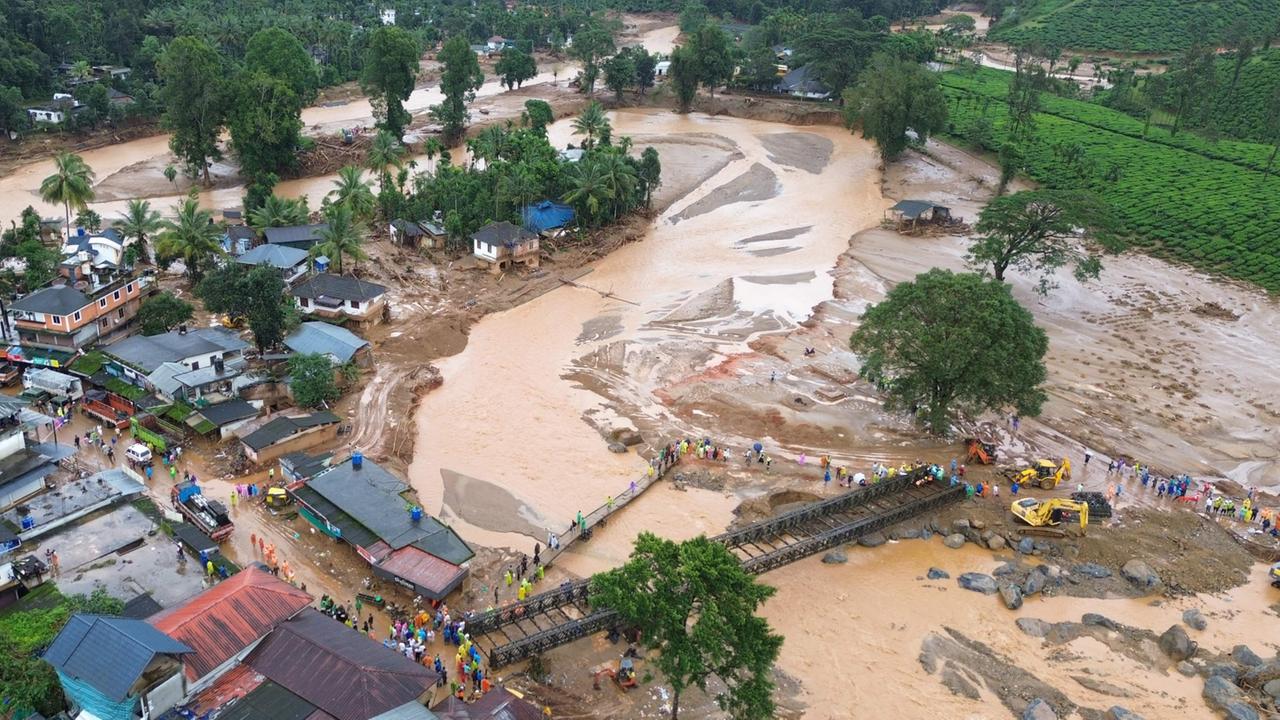It could be the worst disaster to ever hit the southern Indian state of Kerala. There were severe landslides on Tuesday. More than 200 victims have now been recovered.
They sit on bunks, tables and on the floor: families who have nothing left but their lives. A school has become emergency accommodation for hundreds of them. 46-year-old Geetha says her house has been destroyed. “I have lost everything. I only have two sons who are studying elsewhere. I am the only one who can support the family. I don't know what to do, how to pay for my children's education? How to carry on living, where and with what, these are the questions that many here are asking themselves. Nevertheless, they are the lucky ones because they survived.
Sonia Matthew is actually a teacher, and now she is helping the landslide victims. She says many of them have lost their relatives, their children. “Now they are worried about how they will get back on their feet. They have to go back in a few days, but where to? They no longer have a home. That is the biggest problem they have now.”
The mudslides came at night
On Tuesday night, a mountain practically dissolved after days of heavy rain. The disaster came down the hills – in the form of wide, brown mudslides. Houses were buried beneath them, and with them the people who slept in them. It only took Satish Kumar a moment to realize what was happening. “We were fast asleep. At around 1 a.m. our house, everything started shaking. There was a sound, like an explosion.” The taxi driver and his wife took their children and ran outside.
Rescue work could only begin in the morning. The persistent rain, which had softened the hill, made things difficult for the rescuers. Helicopters were initially unable to land, the mudslides and floods had washed away the access roads to the area, and an important bridge was torn away.
Experts: Weather phenomenon La Niña and climate change responsible
There were countless injuries and the hospitals were filling up. But the first dead bodies had already been found and it was clear that there would be many more under the mud of the three largest landslides. Now, as the weekend approaches, the number of victims is over 200 and just as many are still missing.
Tuesday's landslides could be the worst disaster to hit the state of Kerala. In 2018, a similar event killed 300 people. India's meteorologists blame the heavy rain on the La Niña weather phenomenon, along with the effects of climate change.
Political Blame
In the capital New Delhi, the disaster quickly became political. India's Home Minister Amit Shah said in parliament in the middle of the week that there had been an early warning for Kerala. Heavy rain had been forecast a week before the landslides. But the Communists who rule Kerala did nothing, they say. The Hindu nationalist Shah is making it too easy for himself, says Shashi Tharoor of the opposition Congress Party. “There is no doubt about Kerala's ecological vulnerability,” says Tharoor. “And landslides are just a symptom of that vulnerability.”
Decades of human intervention have also made Kerala so vulnerable: the straightening of rivers, the clearing of forests, the construction of settlements in sensitive areas.
Nevertheless, Tharoor says that people cannot simply be banned from living there. “Can we now tell them: don't go there, don't live there anymore? And if so, on what grounds and what can we do for them? And if the Home Minister says, take 4,000 people away from there. Where should they go, what should they do there, how should they live?”
Even now, the excavators are still at work, clearing away rubble, mud, trees, in this area that was once one of the most picturesque in South India – green, rolling hills, with cardamom and tea plantations.
Rakeeba worked on one of these tea plantations. She and her family are desperate. “We don't know where we are going now. Those who have been with us since childhood are no longer here. The school where we learned no longer exists. I don't know who will help us now.”





